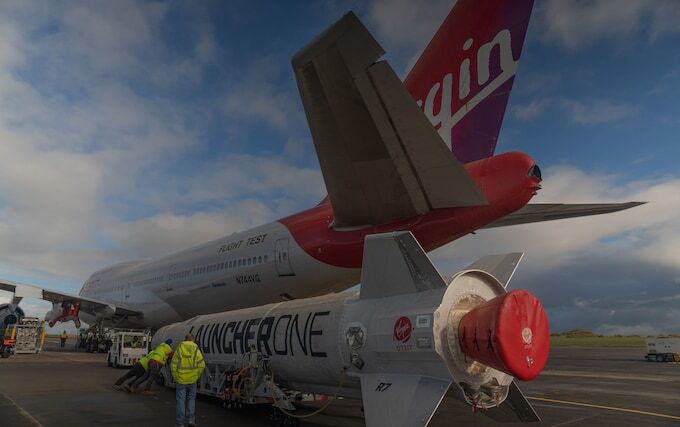3.03.2023

A firm which lost a satellite on Virgin Orbit's failed Spaceport Cornwall launch said UK space regulation needs to undergo "seismic change".
Parliament's Science and Technology Committee heard "devastating" evidence from Space Forge, based in Cardiff.
The company had one of nine satellites on board the 'Start Me Up' mission that failed to reach orbit in January.
Greg Clark, committee chairman, said evidence showed regulation was putting the UK "behind the rest of the world".
UK space regulator, the Civil Aviation Authority (CAA), said changes could be made but safety was "not negotiable".
Meanwhile, Melissa Quinn, Head of Spaceport Cornwall, told the committee the fact they had "got to space" for the first time ever from a "small regional airport" in Cornwall was "inspirational".
She added that they were "licensed and ready" for a second launch.
A dislodged fuel filter was behind January's failure of the first attempt to launch satellites into orbit from the UK, Virgin Orbit said.
MPs heard the CAA's regulatory procedure could deter future missions.
Patrick McCall, non-executive director at Space Forge, said: "The CAA is taking a different approach to risk, and a bit to process and timing as well.
"But I think unless there is, without wanting to be too dramatic, a seismic change in that approach, the UK is not going to be competitive from a launch perspective."
Joshua Western, chief executive of the company, told the committee: "Quite frankly it costs us more to licence our satellite for launch than it did to launch it."
He said the portal for applications and email correspondence was taking up to six weeks, suggesting there is a lack of engagement with UK authorities.
Spaceport Cornwall was awarded an operating licence in November 2022, but further technical and regulatory issues meant the launch was pushed into 2023.
The licences for Virgin Orbit were granted on 21 December, with additional ones for the individual satellites being announced on 5 January.
The Start Me Up mission launched on 9 January, and was progressing as planned until an "anomaly" meant the payload being carried by the LauncherOne rocket were lost into the Atlantic Ocean.
Greg Clark, chairman of the committee told CAA representatives the evidence from Space Forge and Virgin Orbit had been "devastating".
He said: "Something that was a strategic priority for this country to be ahead of the world, we've heard evidence from investors and operators to say that their experience of regulation here has put us behind the rest of the world."
Sir Stephen Hillier, chairman of the CAA, said the regulator had to enact the legislation but conceded licence applicants had to deal with "multifarious agencies".
He said safety was not negotiable, but welcomed encouragement to "move faster".
Tim Johnson, director for space regulation at the CAA, said: "Helping develop a safe and thriving UK space industry is a key part of our work as the space regulator."Quelle:BBC
+++
Britain ‘toxic’ for satellite launches following ‘absolute disaster’ of Virgin Orbit mission
MP Greg Clark, chair of the science and technology select committee, says Government has ‘thrown away’ its advantage in space launches

Virgin Orbit's LauncherOne rocket attached to a specially adapted 747 aircraft
Quelle:TheTelegraph
